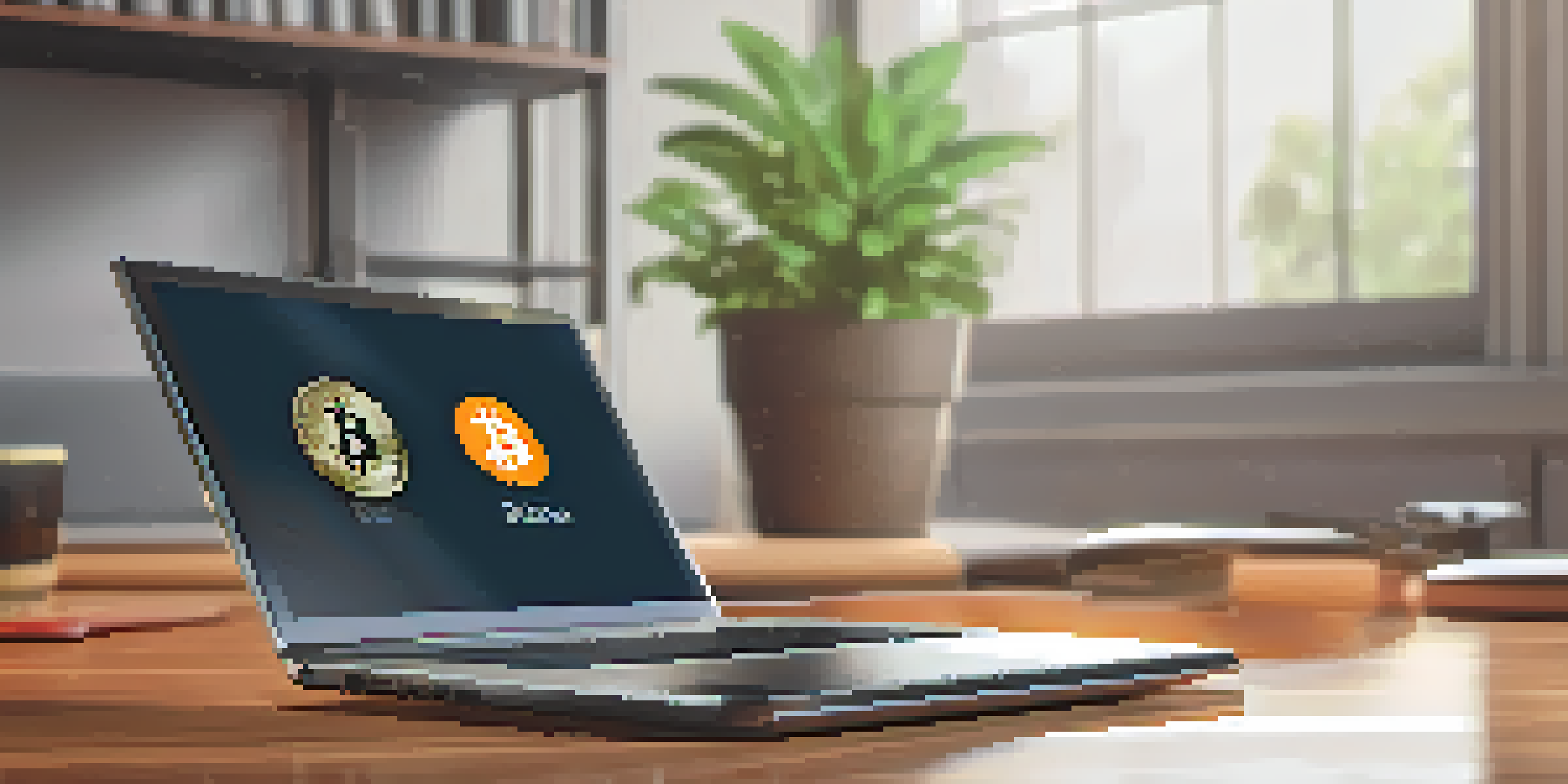Essential Tips for Safeguarding Your Bitcoin Wallet and Assets

Understand Different Types of Bitcoin Wallets
Bitcoin wallets come in several forms, including hardware, software, and paper wallets. Each type has its own level of security and convenience. For instance, hardware wallets are often considered the safest, as they store your Bitcoin offline, away from potential online threats.
The best way to protect your Bitcoin is to treat your wallet like a safe and your passwords like the keys.
On the other hand, software wallets, while more accessible for daily transactions, are more vulnerable to hacking. Paper wallets are a great offline option but can be easily lost or damaged. Understanding these differences helps you choose the best wallet for your needs.
Related Resource
Ultimately, the right wallet depends on how you plan to use your Bitcoin. If you're holding for the long term, a hardware wallet might be your best bet, while a software wallet could be suitable for frequent trading.
Regularly Update Your Software and Firmware
Keeping your wallet software and any associated applications updated is crucial for security. Developers frequently release updates to patch vulnerabilities that could be exploited by hackers. By neglecting these updates, you may leave your assets exposed.

It's not just wallet apps that need attention; your computer or mobile device's operating system should be updated regularly as well. This holistic approach to updates helps create a fortified environment for your Bitcoin.
Choose the Right Bitcoin Wallet
Understanding the different types of wallets—hardware, software, and paper—helps you select the best option based on your usage needs.
Set reminders for updates or enable automatic updates if possible. This small habit can save you from potential disasters down the road.
Use Strong, Unique Passwords
A strong password is your first line of defense against unauthorized access to your Bitcoin wallet. This means creating a password that is long, complex, and unique—avoiding common words or patterns. Think of a password as a secret code that needs to be tough to guess.
Security is not a product, but a process.
Consider using a password manager to help generate and store your passwords securely. This tool can help you manage multiple strong passwords without the need to remember each one. The more complex your passwords, the harder it is for attackers to breach your wallet.
Related Resource
Additionally, never share your passwords with anyone. Treat them like the keys to your home; you wouldn't hand those over casually!
Enable Two-Factor Authentication (2FA)
Two-factor authentication adds an extra layer of security to your Bitcoin wallet. Even if someone manages to obtain your password, they would still need a second form of verification to access your account. This could be a text message code or an authentication app.
Setting up 2FA may seem like an extra step, but it’s a simple way to significantly boost your security. Many wallets and exchanges offer this feature, so take advantage of it whenever you can.
Enhance Security with 2FA
Enabling two-factor authentication provides an additional layer of protection for your Bitcoin wallet, making it harder for unauthorized access.
Remember, the more hurdles you create for potential hackers, the less likely they will succeed in accessing your assets.
Backup Your Wallet Regularly
Backing up your wallet is essential to ensure you don’t lose access to your Bitcoin. Whether you use a hardware or software wallet, regular backups can save you from headaches caused by device failures or accidental deletions. It’s like having a spare key to your house; you never know when you might need it.
Most wallets provide an option to create backups, usually in the form of a recovery phrase or seed. Store this backup in a secure location, away from your main wallet, and consider keeping a physical copy in a safe place.
Related Resource
Make it a habit to back up your wallet after every significant transaction or whenever you make changes. This practice ensures that you always have access to your funds, no matter what happens.
Be Wary of Phishing Scams
Phishing scams are a common threat in the cryptocurrency world. These scams often come in the form of emails or messages that appear to be from legitimate sources, tricking you into providing sensitive information. Always be cautious about clicking on links or downloading attachments from unknown sources.
A good practice is to verify the URL of any website before entering your wallet credentials. If the site looks different from what you’re used to, take a moment to double-check. It’s better to be safe than sorry!
Regular Backups Are Essential
Regularly backing up your wallet ensures you maintain access to your Bitcoin, protecting you from potential device failures or accidental loss.
Additionally, never share your private keys or recovery phrases with anyone, regardless of how trustworthy they appear. Remember, legitimate services will never ask for this sensitive information.
Stay Informed About Security Practices
The world of cryptocurrency is constantly evolving, and so are the tactics used by cybercriminals. Staying informed about the latest security practices can help you adapt and protect your assets effectively. Follow credible sources, blogs, or forums dedicated to Bitcoin security.
Consider joining online communities where members share tips and experiences about safeguarding their wallets. This can provide valuable insights and keep you updated on potential threats.

Remember, knowledge is power. The more you know about the risks and how to mitigate them, the better equipped you'll be to protect your Bitcoin.